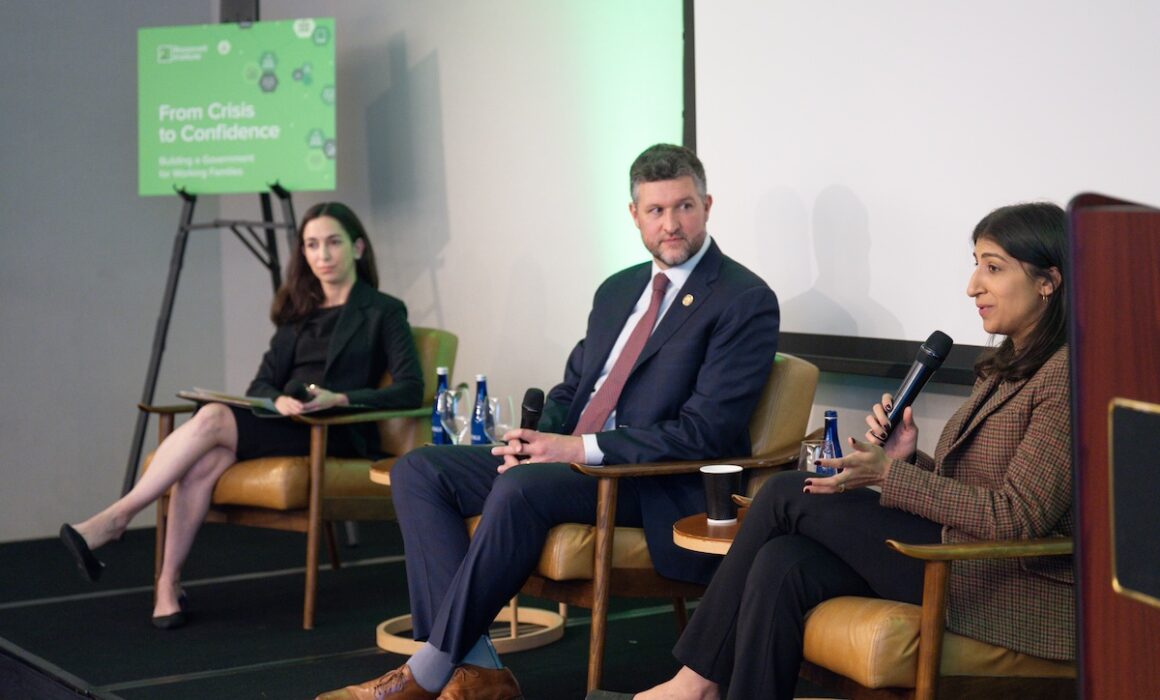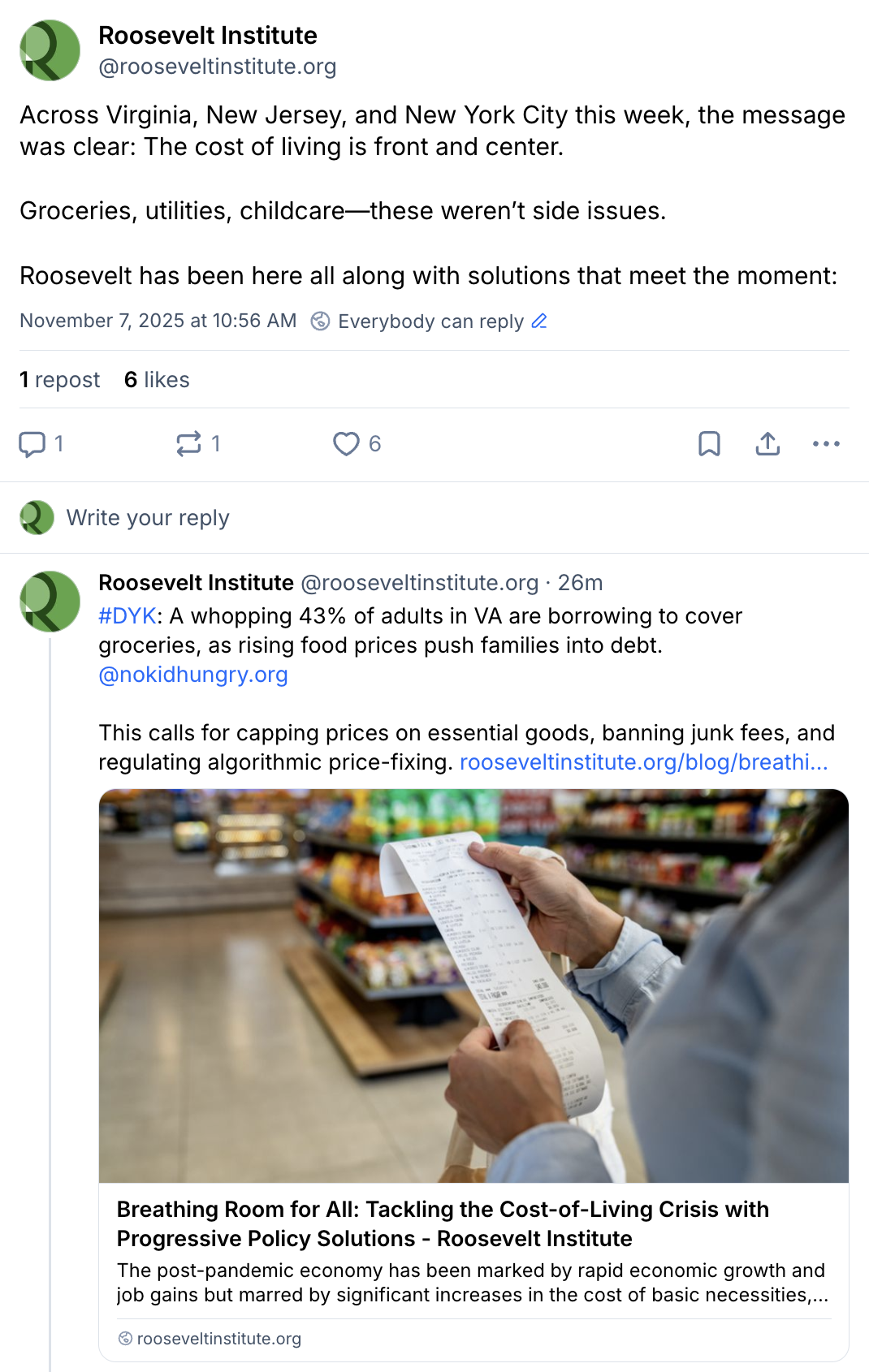How to Take Risks and Govern with the People
November 7, 2025
Takeaways from a gathering of policy, advocacy, and labor leaders
The Roosevelt Rundown features our top stories of the week.

Left to right: Hannah Garden-Monheit, Representative Pat Ryan, and Lina Khan at the Roosevelt Institute’s convening on November 3, 2025.
A Debrief and a Game Plan
The current government shutdown officially became the longest one in US history on Wednesday, as it reached 36 full days (and counting). And with each day that passes, the nation’s institutions lose credibility with the public. Last week, Roosevelt published 161 practical ideas for making government more effective and responsive, informed by dozens of interviews with former Biden-Harris administration officials. This week, policy experts, former public servants, labor leaders, and others came together to dig into the recommendations and chart a course for designing the nimble democratic institutions the public needs.
The Roosevelt convening, “From Crisis to Confidence: Building a Government for Working Families,” kicked off with Rep. Pat Ryan (D-NY), former Federal Trade Commission Chair Lina Khan, and report coauthor Hannah Garden-Monheit discussing how taking more aggressive approaches toward curbing corporate power can build trust with constituents—particularly in the context of a dysfunctional Congress and hostile courts. Panels and smaller group discussions throughout the afternoon focused on a) prioritizing outcomes over bureaucratic processes and b) building popular support to protect policies in the long term. (Check out a live recap of the day from Roosevelt’s Todd N. Tucker on Bluesky.)
The tide is turning—more and more leaders are understanding that to meaningfully improve people’s lives and rebalance the economy to empower workers and families, the government must be willing to act boldly and take risks. “Convention has held us back,” New York City’s new mayor-elect Zohran Mamdani said on Tuesday. “We have bowed at the altar of caution, and we have paid a mighty price.” Repaying that debt will require leaders and public servants who innovate and deliver—both for and with the public.
What We Need to Escape a New Gilded Age
“Oligarchy” has emerged as 2025’s biggest political buzzword, but it took decades of policy decisions to create the staggeringly unequal economic system we live in today. This entrenched economic inequality—and how to reverse it—is the subject of a new report from Oxfam America, which features forewords from Sen. Elizabeth Warren (D-MA) and Roosevelt President and CEO Elizabeth Wilkins.
“Today, we are seeing the dark extremes of choosing inequality for 50 years,” Wilkins writes. “It is still within our power to reverse these trends…[T]o emerge from this moment of oligarchy, we must see inequality not as an abstract problem, but a human one.”
Read the report, authored by Oxfam Senior Policy Lead and Roosevelt Society Reimagine America Fellow Rebecca Riddell: UNEQUAL: The Rise of a New American Oligarchy and the Agenda We Need
What We’re Talking About
What We’re Reading
- On the costs of raising children: In Washington Monthly, Roosevelt’s Suzanne Kahn reviews the new book After the Spike, which argues that population decline is an existential threat. “Whether or not you accept their unique blend of alarmism and optimism, it’s clear that the opportunity cost of children is currently too high,” Kahn argues. “Research to support stabilization is a worthy cause, because we should all want a world where children are seen as an opportunity, not a cost.”
- On the SCOTUS tariffs case: Roosevelt’s Todd N. Tucker spoke to Reuters about this week’s oral arguments in the lawsuits over Trump’s tariffs and Justice Neil Gorsuch’s surprising line of questioning: “Gorsuch correctly noted, and the DOJ (Department of Justice) agreed, that the president’s interpretation of IEEPA powers would allow a future president to declare a climate emergency and heavily tax gas-powered cars.” See more of Tucker’s analysis on Bluesky.
